For over a decade, the use of the word transformation has become more and more prevalent in our movements’ work. Whatever the varying definitions of what transformation means, essentially we use it as an indicator for our desire to bring the present toward something more just and equitable… permanently. The institutionalization of the terms “transformation” and “transformative” brought with it the emergence of those who identified themselves as transformational leaders – those who we identified as transformational leaders, and to whom we attribute specific innovation and substantial work bringing transformative practices to the rest of us.
And then, it seems, just like that, some of this work imploded.
In the Fall of 2013, news of inappropriate behavior within one of the more prominent intermediaries in the U.S. sparked controversy that soon ballooned to involve many individuals, as we heard more and more about movement leaders and transformational trainers having unethical sexual relationships. The fallout is huge, yet largely unknown, and continues to affect countless relationships and individuals across and beyond the transformational movement arena.
Over these last 9 months, folks across the country have been grappling with what actually happened, and like any other time something big goes really wrong, folks look to locate the root cause, the exact who and exactly what, of the matter. Typically, when there are gaps in our knowledge of what has happened, we create a sense of safety by making things up to fill the space. And since the main characters have yet to publicly share their own experiences, we’ve developed our own narratives about what happened that, having arisen from our anger and sense of betrayal, serves to only deepen those feelings.
The essence of the situation is this: a handful of people that our movements have admired, to whom we’ve exposed our vulnerabilities, betrayed our trust. That hurts. And that makes us want to turn away and run from anything they’re associated with. And so, folks ran. In fact, folks outright abandoned these leaders, and some shunned the work and concepts they represent. Let’s face it. It is downright scandalous. None of this has felt right to anyone involved. None of this has been right for our movements and we need to do something to change this.
I have been engaged in transformational work for almost nine years; both in my own life as well as an integral part of the work I do in service of our collective movement. I have a personal stake in how these events are interpreted and how we move out of this place of distrust and hurt. I feel a sense of responsibility to give voice to what I have witnessed and to offer a perspective of what happened in the hopes that we can move towards greater understanding and healing.
Otherness. Otherness is what really happened.
Otherness on the leader level: we are not immune to the trappings of power and being seen as other than everyone else. It is easy to create an ever-widening imbalance in our relationships that propels our individual identity, our needs, and feelings above those who we are charged and trusted to serve. This happens when what we desire, on behalf of others, is overcome by our desire to be seen. And then it’s just our egos with little to no room in between. Tragically, the first thing to go here is the discipline of being the change we seek to manifest in the world.
The lowest bar for a transformational trainer is to be authentic by practicing what we preach. A high bar is to engage in guided transformational personal practice. Without either of these, there is otherness. Practice for the sake of practice serves the ego and rarely anything else. Stand-alone practice, without purpose and guidance does not achieve transformation, regardless of the time and effort put into it. It is true that 3000 repetitions may indeed achieve physical mastery but all this means is that the repetition will be in our bodies. That is it. It does not mean that the kind of embodiment occurs in which we transform our emotional or spiritual bodies. This is one way practice in service of ego happens.
When we serve our egos, we create otherness to distinguish ourselves. To elevate our egos, and make true our false narratives that we are better and more evolved, allows us to use others, whose service we are truly charged with, turn it on its head, to further serve our egos. Teaching practice in absence of our own intentional practice is the failed attempt to deeply understand that which is beyond our own experience. This is not transformational. Not even close.
Our work is truly righteous and thus has inherent opportunities for bigger ethical trappings. We wear the armor of the high moral ground that fighting for a just society affords us. When that armor is affixed with badges of freedom-fighting slogans, they become mere rhetoric because we use that as our grounding instead of continued, cultivated inner strength and knowing.
And, no individual does this on their own. We help by unwittingly servicing otherness.
Otherness on the witness level: Our complicity in creating and sustaining otherness is multifold. Psychologically, we do so by drawing distinct lines between ourselves and those we look up to as leaders. We create hierarchies that falsely place our leaders above us, rather than as an extension of ourselves, which adheres to a narrative of personal inadequacy while also attaching a superior status to these leaders that can deprive them of their humanity.
Like the masks we can wear to hide ourselves from the world around us, we similarly throw masks on leaders to hide big and small flaws alike. This, too, is complicity and perpetuation. We compromise our own principles to maintain loyalty, as if they are competing factors when they are, in fact, one and the same. Our principles largely hinge on being loyal to ourselves and each of us to everyone, regardless of anyone’s particular role. Exercising that loyalty means calling upon each other to authentically claim our humanity, including missteps in our own actions. We further exercise that loyalty by lovingly and openly holding each other to account, and testifying to disruptive and hurtful impacts when they occur.
Like all magical illusions, eventually, there is a big reveal. The moment, in which we can no longer hold up the masks and our own blinders, where “what really is” lies before us as surely as the sun shines. And we are shocked to our cores. We are consumed with disbelief, anger and betrayal. We don’t stay in relationship. Of course, we don’t. We run. We run and that creates yet another layer of otherness.
I believe it’s normal to run because we need to take care of ourselves and make sense of the disrupted things around us. Fine. Run. It can be healthy. But when we run and stay running, are we really creating a world that is just? That is fueled by and centered on love? It is these very moments, where we chose to create great distance, when what we truly believe becomes distorted. Here we fail to see that the things we aspire to be, that is emulated in our leaders, is already inside of us, waiting to take seed and grow within our own beings.
In all this, there are three really big openings for our movement:
One, these leaders need to own the disruptive impacts of their actions and make public offerings of apology for perpetuating the hurt by not authentically claiming their humanity and proceeding to realign themselves with the movement’s best practices and principles. Accepting and embracing our missteps, working through them both personally and in collective communication, is an essential part of acting as true agents of transformational change.
Two, as a collective, we cannot remain silent and collude. We must raise up our voices and say what must be said: “We witnessed and here is what happened.” As we do this, we create a large container for all of us to be more forthcoming and speak our truths. From this place, we can individually and collectively heal.
Three, it’s a needed right of passage to desire wanting to be the embodiment of something big like love. A lot of us struggle with this and often find ourselves knowing “the what” but not really knowing the how.
Here is my offering… “the what” and “the how”. “The what” is fearless radical love. “The how” of fearless radical love requires us to step towards and lean in. Way in. So much so that the very thought of something negative about the person who has wronged us feels like a dis-ease inside of our bodies. Keep stepping toward and leaning in until our compassion overrides our anger, hate, and our desire to distinguish ourselves from the other. This is oneness. When leaning in reveals to us our pain, the pain of the one who has wronged us and how these pains are our collective pain.
The antidote to otherness is oneness because we understand that changing ourselves is changing the world. Because we understand that what happens in some silo, in some part of our larger movement, deeply impacts all of us. If we are to embrace our own work and the vision and purpose that drive us individually, me must also embrace the complete sum of us including all that we are capable of as human beings.
Ultimately, transformational work is a path we must all journey on. If we are to transform society, we must transform ourselves first. These lessons are not meant to rationalize and okay the wrongs, or to spark fears of what this path will mean for us, and possibly scare us from being on our own transformational path, but rather to say we will make mistakes and that we can fearlessly claim them as a part of our transformational process to authentically be in our full humanity.
(Photo Credit: Zenquility)



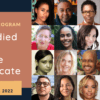
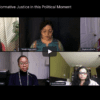

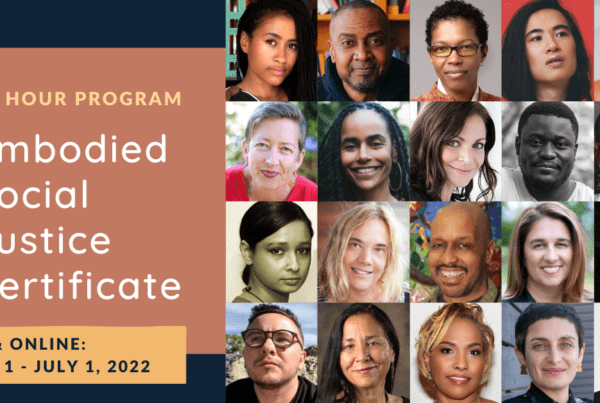
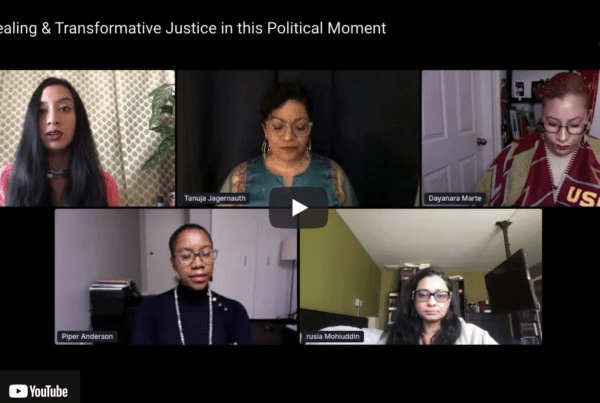


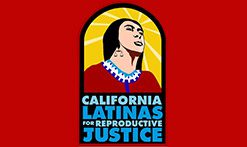

Thanks Rusia for taking leadership at a time that no one wants to and publishing something that can help us start that difficult dialogue.
I am open to start that dialogue event if is thru your website or a conference call.
This the time to leave the gossip to the side and start the dialogue and healing where is needed.